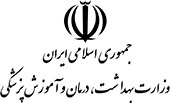Abstract:
هدف: در قرآن کریم و روایات معصومان(علیهمالسلام) به مسعود و منحوس بودن برخی روزها و شبها اشاره شده است. جبرانگاری در مبارک و یا نامیمون دانستن ایام، آثار مخربی بر روان و سبک زندگی انسان میگذارد. با توجه به عوارض فشارهای روانی برآمده از این اندیشه برای جامعه، در این مطالعه کاربست مفهوم سعد و نحس در آیات و روایات مورد بررسی قرار گرفت.مواد و روشها: این مطالعه توصیفی_ تحلیلی از محل بررسی آیات 16 سوره مبارکه فصلت، 19 قمر، 3 دخان و 35 رحمن در تفاسیر معتبر شیعه بهویژه تفسیر المیزان علامه طباطبائی و نیز مراجعه به منابع روایی و متون فلسفی و کلامی انجام شد.یافتهها: رابطه معناداری بین انگاره جبر و اختیار با سلامت روانی و سبک زندگی برقرار است. همچنین رابطه معکوس بین مفهوم صحیح برآمده از آیات قرآن و روایات معصومین(علیهمالسلام) در مسأله سعودت و نحوست ایام با اختلال ناامیدی و افسردگی وجود دارد.نتیجهگیری: پس از بررسی کاربرد سعد و نحس در آیات و روایات میتوان چنین بیان کرد که سعد و نحس بودن مربوط به خود روزگار نیست. بلکه میتوان دو صورت را برای مسعود یا منحوس بودن روزگار بیان کرد: نخست، آن نشان از اعمال و اتفاقاتی است که در روزگاری خاص اتفاق افتاده و سبب مبارک و نامبارک شدن آن شده است. به این معنا که در هر روز و شبی که نافرمانی از دستورات الهی صورت پذیرفته باشد آن روز یا شب نحس خواهد بود و اگر اطاعتی از دستور الهی انجام پذیرد آن روز یا شب مبارک و سعد میشود. دوم، هر فرد به نسبت اتفاقی که در روز یا شبی خاص برای او پیش میآید آن روز یا شب برای آن فرد سعد یا نحس است. به این معنا که اگر عذاب الهی بر او نازل شود نحس و اگر رحمت الهی نازل شود سعد خواهد بود. بنابراین برخی از اشارات به سعد یا نحس بودن روزگار جنبه تربیتی دارد و برای توجه داشتن انسانها و عبرتگیری از حوادث گذشته است.
Abstract:
Purpose: In the Holy Qur'an and the traditions of the innocents (peace be upon them), it is mentioned about Masoud and the desolation of certain days and nights. Determinism in knowing auspicious or inauspicious days has destructive effects on human psyche and lifestyle. Considering the effects of mental pressures arising from this thought for the society, in this study, the application of the concept of Saad and Nahs in verses and narrations was investigated. Materials and methods: This descriptive-analytical study was carried out from the examination of verses 16 of Surah Mubarakah, 19 of Qamar, 3 of Dukhan and 35 of Rahman in authentic Shia interpretations, especially the interpretation of Al-Mizan by Allameh Tabatabai, as well as referring to narrative sources and philosophical and theological texts. Findings: There is a significant relationship between the concept of predestination and free will with mental health and lifestyle. Also, there is an inverse relationship between the correct meaning derived from the verses of the Qur'an and the traditions of the infallibles (peace be upon them) in the matter of Saudah and the correctness of days with despair and depression. Conclusion: After examining the use of Saad and Nahs in verses and traditions, it can be said that being Saad and Nahs is not related to the era itself. Rather, two ways can be expressed for Masoud or the evilness of the times: First, it is a sign of actions and events that happened in a particular time and caused it to be blessed and unblessed. This means that on every day and night that disobedience to the divine orders is done, that day or night will be sad, and if obedience to the divine order is done, that day or night will be blessed and happy. Second, each person is happy or sad according to what happens to him on a particular day or night. This means that if divine punishment descends on him, he will be sad and if divine mercy descends on him, he will be happy. Therefore, some references to the happiness or sadness of the times have an educational aspect and are meant to make people pay attention and learn from past events.

(پژوهیار,
,
,
)

